
Raise your hand if you’ve ever agreed to do something that you knew you didn’t want to do, just so you didn’t have to hurt someone’s feelings by saying no. *raises hand*
Raise your hand if you ever agreed with someone’s belief because you didn’t know how to speak up and politely disagree. *raises hand*
Raise your hand if you ever did something that was against your values, just to fit in. *raises my damn hand*
Major sigh. Same, same, same.
With that being said, have you ever stopped to question who you are? I mean, who you really are? What things you love, what things you hate. What you like to do for fun. What your beliefs are. Why you do the things you do.
I’m talking who you are underneath the roles you play. Underneath being the mom, older sister, or friend. And even underneath the people pleaser, the giver, the fixer, the perfectionist, the warrior. Underneath the masks that you are wearing.
So many of us are on autopilot that we don’t know who we are. Instead, we are a collage of the beliefs we’re told to believe, acting how we’re told to act, and doing things other’s want us to do.
We’re a group of people pleasers and fixers that are so far away from our authenticity that we are living as a shell of ourselves created as a product of our environment, society, and cultural upbringing.
Our subconscious is filled with ideas about who we think we’re supposed to be and the roles that we think we’re meant to fulfill, and when those ideas are challenged in any way, we go through an identity crisis. We’re left wondering who we are, and how we even got to the point of not knowing ourselves.
I’ve been there many times.
I want to say I lost myself a few years ago when a long-term relationship I was in was coming to an end (in case you missed it...read here, listen here), but it’s hard for me to say that I knew who I was enough to “lose myself”.
At the time, I was getting my self worth from that relationship. I’m talking the most unhealthy I-am-nothing-without-you type of relationship. So, naturally, when the relationship was ending, I was forced to face my lost sense of self.
I was forced to ask myself the most important question of my life...
Who. The. Fuck. Am. I
I had no idea where to start figuring that out, and I remember interviewing people in the office about my life.
Hi, can I ask you a few questions? How would you describe me? What are my strengths? What beliefs do you think I hold? Can you think of any hobbies I would enjoy?
Ugh, I wish I was exaggerating.
I had no idea who I was as an individual. I had no idea what my values were, what I believed in, what things I enjoyed and didn’t enjoy.
It wasn’t until I started exploring these questions intentionally that I was brought home to my authentic self.
So...what is the authentic self?
When we’re born, we’re born as a completely whole human with a clean slate. As we grow older, there are things that happen to all of us that cause us to hide our true selves. These “things” that happen to us can be anything ranging from from experiencing any degree of abandonment, emotional neglect, a parent that is highly critical, or being teased in front of the class in kindergarten. It doesn’t matter what the “thing” is, but what they all cause are feelings of rejection, feeling unloved, or unworthy.
And because we’re children who don’t have the emotional intelligence or capacity to intellectualize yet, our only way of coping with the painful emotions these events cause is to hide parts of ourselves and replace them with coping mechanisms and behaviors to soothe the uncomfortable emotions that are being felt.
These coping mechanisms become masks that we wear and, over time, we take on roles that we think we should play in society. These roles help us to silence the emotions of feeling rejected/unworthy and instead receive the love and validation that we need. These roles and masks ignore our inner selves and favor things outside of us - the voices of loved ones, the culture we’re surrounded by, and a belief system that may not be true to us. These coping mechanisms, roles, and masks form what is called our ego.
This means that we’re not so much walking around as ourselves, but more so constantly shape shifting into versions of ourselves that mesh well with family, friends, and society. This ensures that we’ll be accepted, loved, appreciated, valued and that all is good and happy in our world.
So instead of joining theater, we play sports because that’s what “boys do”. Or instead of speaking up about something we believe in, we silence ourselves because we don’t want our opinion being judged. Or instead of having needs, we pretend we’re laid back because “having emotions means we’re sensitive”. Hi, that’s me.
Our authentic self is who we are underneath these masks we wear and roles we play. It’s who we are when no one is looking. It’s made up of the things we do, enjoy, and believe when we’re not trying to receive outside validation. It’s the way we spend our time that is true to us. It’s the things we value despite others’ beliefs, perceptions, and opinions of us. It’s who we are when we’re not trying to please someone. It’s the version of ourselves we know we are despite any fears, doubts, and anxieties.
Our authentic self is who we are at our core when we feel most like ourselves.
As we awaken, it’s natural for us to hate our masks. Hate the part of ourself that wants to people please and fix. It’s natural to wonder why we can’t just show up in the ways that we want. Hi, that’s me again. I catch myself getting frustrated daily at my need to be perfect and all of the different ways perfectionism shows up in my life.
But, learning to love that part of ourselves starts with understanding that the ego is a good thing.
Our ego serves a purpose
When we were children, things happened that caused us pain. Pain that we couldn’t process because we didn’t have the capacity and knowledge to advocate for ourselves. Our brains were too immature to understand and, often times, we had parents who didn’t understand themselves.
So when something painful happened, our brains found ways to ease the pain and to get our needs met, even if that meant that we had to abandon ourselves.
If we were called too emotional or too this or too that, we molded into what we needed to fit someone else’s standards in order to feel loved. And each time a coping mechanism or mask was used that allowed us to avoid pain, that particular action was reinforced as good because it kept us safe. And when this happened, our ego was not only formed, but reinforced as our shield that protected us from feeling unworthy. And in doing so, the ego became more powerful separating us more and more from our authentic selves.
You see, the ego is just trying to protect us. Our masks are created to keep us safe. Created so that we don’t have to deal with the painful emotions of feeling rejected, unworthy and unloved.
It can be easy for us to shame our egos, but shaming it will only reinforce the narrative that we aren’t good enough as we are. A healthier option is to learn to love our ego.
Learning to love our ego
Our ego is what stands between us and our authentic selves. The more you learn about your ego and what it’s protecting, the more you can soften the shield. And the more you soften the shield, the more your authentic self can start to shine through.
Learning to love our ego starts with accepting that it serves a powerful purpose.
But it also requires radical acceptance for who we are- our masks and what they’re trying to cover up. It requires integrating every single part of ourselves, the parts that are “good” and the parts that we think are “bad”.
We begin doing this by identifying what our masks are and what they’re hiding. We ask ourselves what purpose those masks are serving, and why we’re too scared to put them down.
We ask ourselves what fears we’re covering up and why they are there in the first place.
We examine our beliefs systems around love, marriage, goodness, success, youth, and beauty, and we start to differentiate between which beliefs are ours and which ones we picked up from our programming or society.
We are gentle with ourselves when our incredibly fragile authentic selves start to come to the surface.
This is where the work is.
Only when we start accepting our ego, our masks, and the roles we play in society can we start to come back to our authentic selves and live an authentic life.
An authentic life
When we’re living authentically, we’re taking conscious and intentional action that aligns with who WE are at our core and our values.
It’s challenging every “you should” and “you have to” and seeing what the root of that belief is so that you can overcome it and choose actions that are aligned with you, your values, and your goals.
Living an authentic life is one that is filled with joy and love and openness. It does not remove the fear of rejection or being unworthy, but it creates enough space between those emotions and your sense of self so that you can address the fears, give yourself what you need, and choose aligned action.
Living an authentic life is holding your self worth close to you so that it doesn’t have to waiver with things outside of yourself.
Living an authentic life cannot come without learning about your ego (the masks we put on and the roles we play to receive love) and what’s hiding underneath.
Only when we uncover our masks can we learn about our authentic selves.
And only when we understand our authentic selves can we take our power back and begin to live an authentic life.
Learning about our ego, uncovering our authentic selves, and living an authentic life isn’t easy. It can be dark and challenging while you’re shedding layers of your fake self (what I call The Limbo State).
When I started learning about my authentic self, I felt like I was going through an identity crisis. I felt like I had spent my entire life living in the dark, choosing paths for myself based on how they would be perceived by others. It was so hard to look around at different areas of my life and think.... none of this is ME.
It takes work to stay conscious and intentional in your decisions and act in ways that align with your authentic self. It’s tiring, and the grief that rises can be unbearable.
But, the good news is you are in control. You have control of your life, what that looks like, and who you choose to be moving forward. So just because you may have been living inauthentically for 25, 40, 60 years, it’s never too late to come back home to yourself.
And home is where you’re meant to be.
Interested in ideas on how to get closer to your authentic self? I wrote about how finding my ‘authentic code’ gets me closer to my authentic self, and how following it keeps me aligned daily. I’m posting it next Monday, so follow us on instagram so you don’t miss it!
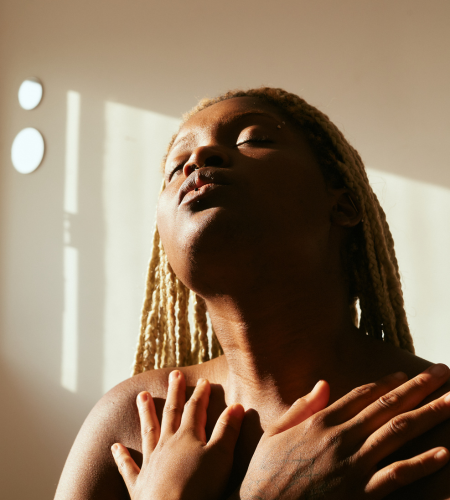
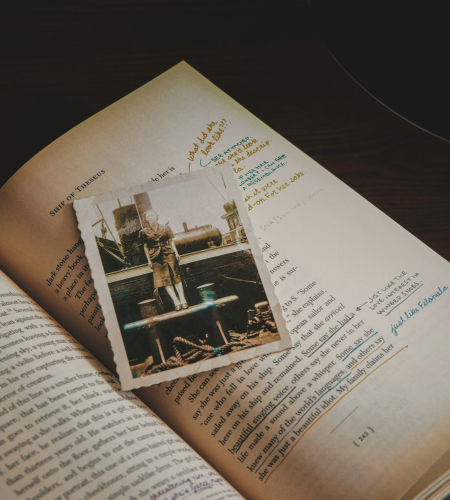
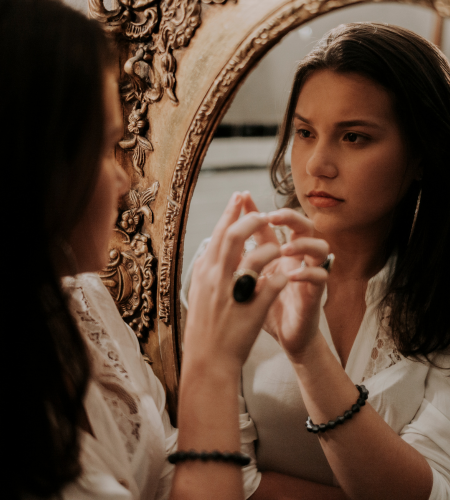
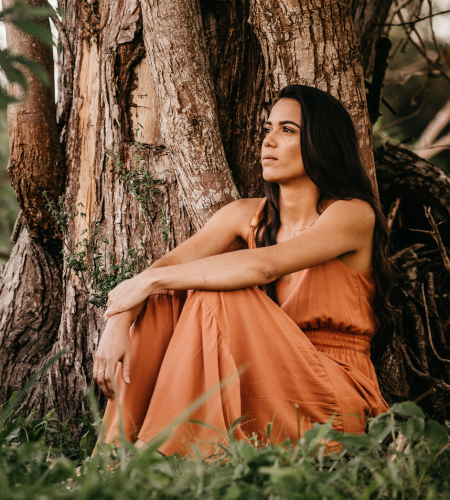
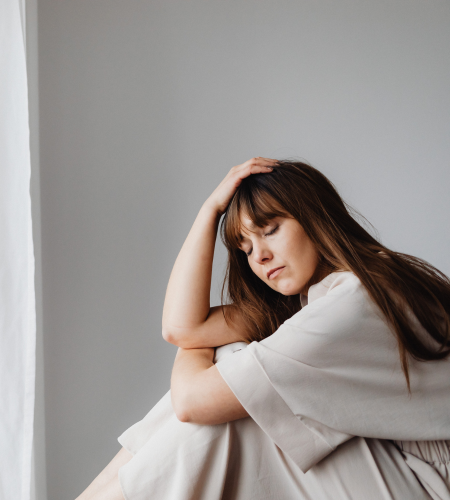

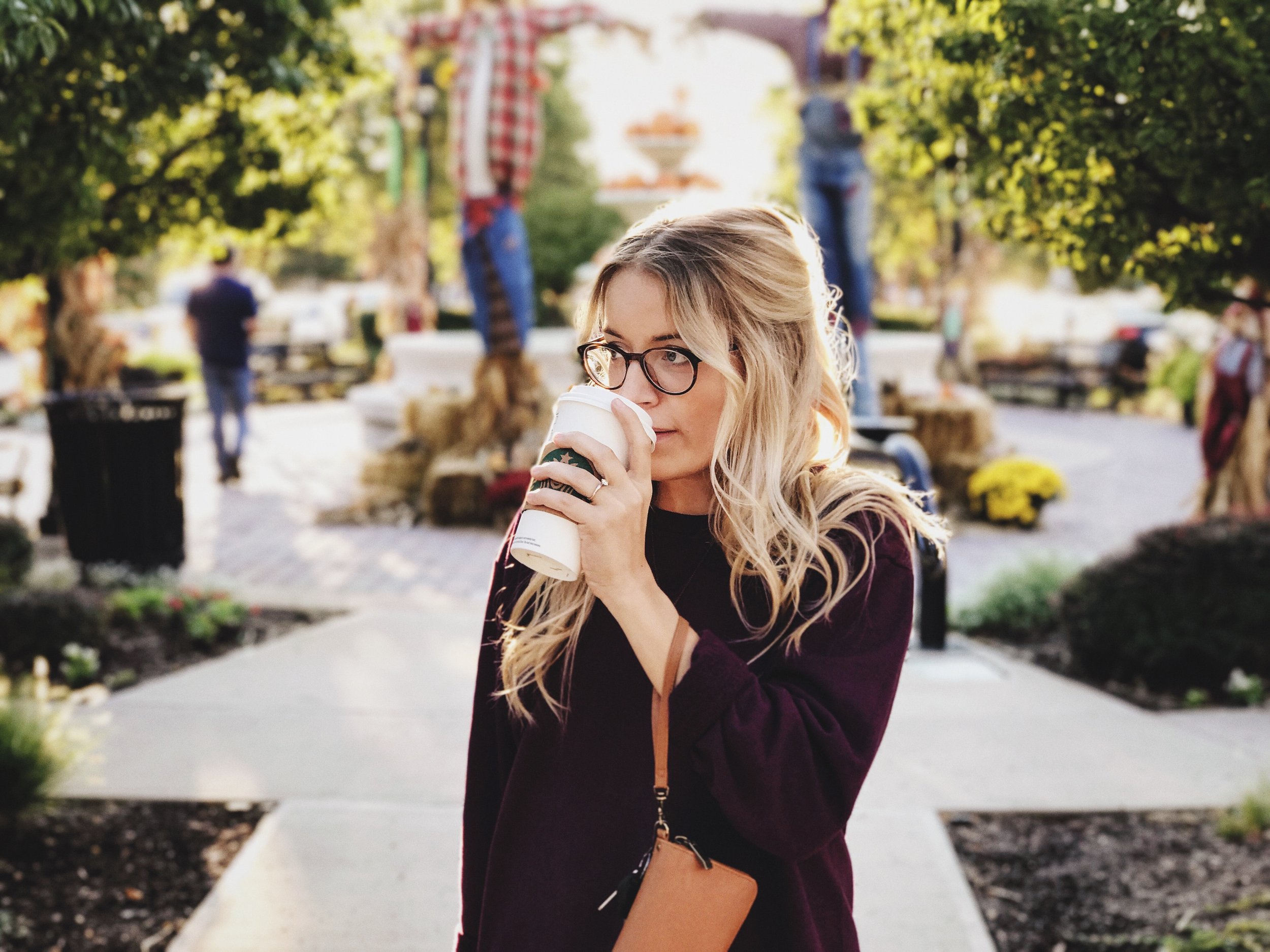

+ view comments . . .
+
view comments . . .
-